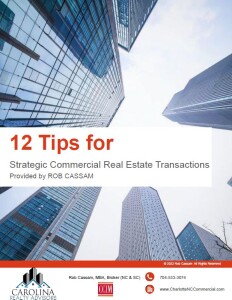In this issue
- The Success Of A Prospective Tenant
- Lenders, Property Managers – A Service Joint Venture
- Rental Market For Senior Lifestyle
- Variations of Commercial Leases
- Investment Planning
Owners must think about vacancies when checking a prospective tenant. Will the tenant’s business survive? When you have a prospective tenant for a commercial center, you must consider whether that prospect would be a good tenant. There are two key standards to apply; (1) the prospective tenant’s financial stability; and (2) the prospective tenant’s potential for success…..(more)
Whether times are good or bad, lenders always have foreclosed properties in inventory. During a recession the inventory may be high. One of the problems that banks and insurance companies have is disposing of this real estate owned (REO). They are faced with the decision of whether they wish to dispose of the property immediately or hold it for a period of time to hope for an increase in value. They would like to see the value of the REO increase to equal the loan amount. These lenders are not professional real estate investors but money managers. Therefore, they are reluctant to invest any additional money in the properties. This problem is compounded because a troubled property needs more attention than does a healthy one. It would not have been in foreclosure if it didn’t need help. The solution might be a service joint venture. This type of contract with a real estate firm allows the lender to minimize management fees until the property is generating cash flow again…..(more)
Not all retired people want to own their own home. Many prefer to be tenants. Many feel that the proceeds from the sale of their old home can be used to supplement their pension and social security, rather than reinvested in another home. The money can be used for travel, visits to children and grandchildren or for medical expenses.
For living quarters, these seniors prefer to be rent payers, not owners. A modest-sized apartment suits their needs and, as tenants, they are relieved of any worries about maintenance and repairs……(more)
A lease is an integral part of many real estate investments. It should outline all the obligations of the tenant and of the landlord. This sounds simple, but many questions arise. If, for example, property taxes increase, does the tenant pay all of the increase or only part of it? If the property must be modernized, who pays for the improvement? Can the tenant be moved out during the renovation? If the costs of servicing the property rise, should the tenant pay none, all, or part of the increased costs? How should inflation be handled—with automatic rental increases? With increases tied to some index, perhaps the Consumer Price Index?….(more)
A prospective investor may have a problem getting started with a real estate investment because of the great variety of properties that are out there. They may be fearful that someone will “sell” them something – something that is wrong for them. An answer to these problems can be an interview with an interested professional real estate broker who can act as a real estate investment counselor. Each prospective investor can be interviewed in depth to find out specific needs in an income property. At the same time their needs are being evaluated, the broker will also communicate what benefits are available in various properties and how to identify them. (more)




